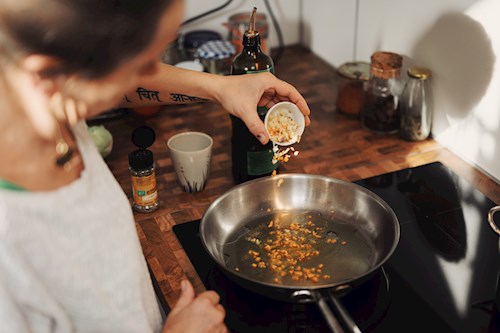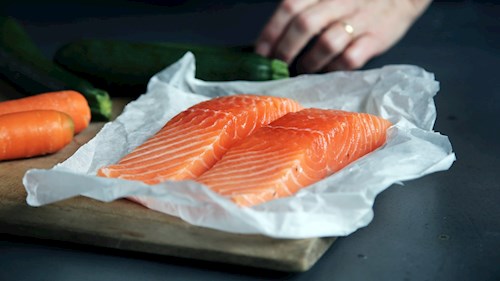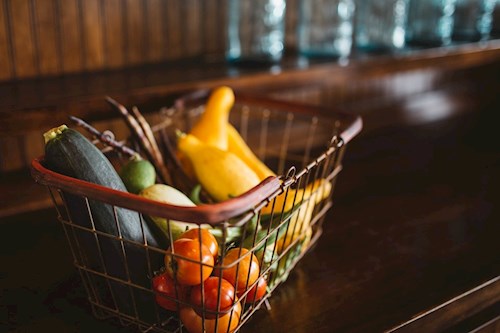
.jpg)
On a clear, summer morning outside the Sun Prairie Food Pantry, the humidity hangs heavy. The outer walls soak in the sun, and a line of clients lean against the warm bricks waiting for the pantry to open, sometimes up to an hour or more ahead of time.

Most people are used to their cooking routine— gather the ingredients, prep the food, and hear the gas stove start to click as they light it. I myself am used to this convention, usually fiddling with the gas stove until my food suddenly turns out burnt and I have to turn down the heat.

I cycled through the Ozarks last fall with a friend who is a fisheries biologist from Washington state. We camped out on mountain peaks and refueled in small towns. Overall, our dietary preferences were extremely compatible. Motivated by hunger, we efficiently re-stocked our panniers off the shelves of mom-and-pop gas stations and Super Walmarts - we were in rural Arkansas - without much debate. Our joint mission ground to a halt, however, the first time we encountered seafood.

Climate change can often feel overwhelming. In the face of a global crisis, our individual actions may seem inconsequential. Maybe rinsing out a can of refried beans before placing it in the recycling isn’t going to “Save the World,” but our consumer choices are significant. The impact of any given action is additive when it becomes a habit, and multiplies when we share our climate hacks with friends and family. To that end, I hope that this blog will provide actionable steps that support your journey toward living more lightly on our planet and that you, in turn, will share them with others.